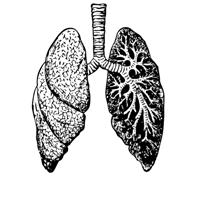The extrinsic factors affecting patient access, referral and treatment of lung cancer in selected oncology public health facilities in KwaZulu-Natal

Accepted: 14 December 2021
HTML: 96
All claims expressed in this article are solely those of the authors and do not necessarily represent those of their affiliated organizations, or those of the publisher, the editors and the reviewers. Any product that may be evaluated in this article or claim that may be made by its manufacturer is not guaranteed or endorsed by the publisher.
Authors
Patients’ insights into the factors affecting access, referral and treatment of lung cancer in public healthcare facilities, are key to the fight against this disease. On the other hand, the lack of epidemiological information on the actual burden of lung cancer, makes it difficult for public healthcare facilities to be adequately equipped to deal with foreseeable challenges in the oncology units. In order to inform patientcentred interventions and lung cancer control programmes, this study explored extrinsic factors that affect lung cancer patients throughout the cancer care continuum in KwaZulu-Natal. Nineteen patients receiving care in the three public healthcare facilities providing oncology services in KwaZulu-Natal, were interviewed using an interview guide. Following data saturation, thematic analysis was used to develop the themes relating to the extrinsic factors affecting the provision of cancer care. Five themes emerged from the analysis, namely: geographical dynamics affecting patient access to a healthcare facility, lung cancer suspicion index in the diagnostic trail within the different levels of care, decision-making trail for the referral system, equipmentinduced delays and healthcare-patient communication. A number of lung cancer patients utilising oncology services in public healthcare facilities in KwaZulu-Natal, are often met with various extrinsic factors affecting their progression through different stages of cancer care continuum. Therefore, the results of the extrinsic factors explored in this paper through the lung cancer patients’ lenses may be used for designing mitigation plans to reduce delays in lung cancer care in KwaZulu-Natal.

 https://doi.org/10.4081/hls.2022.10170
https://doi.org/10.4081/hls.2022.10170



